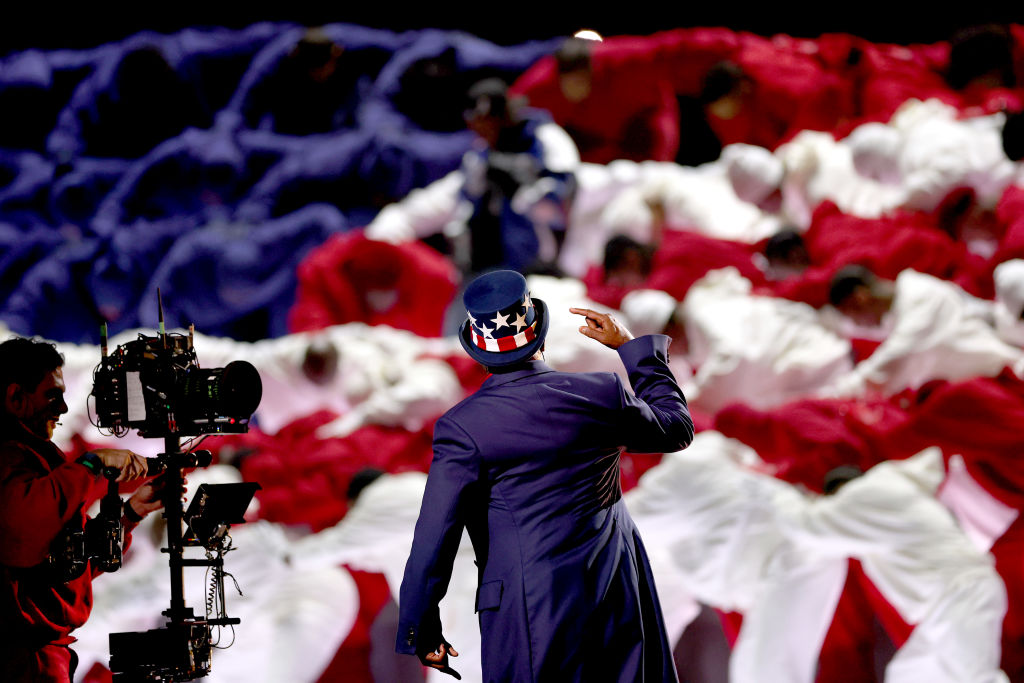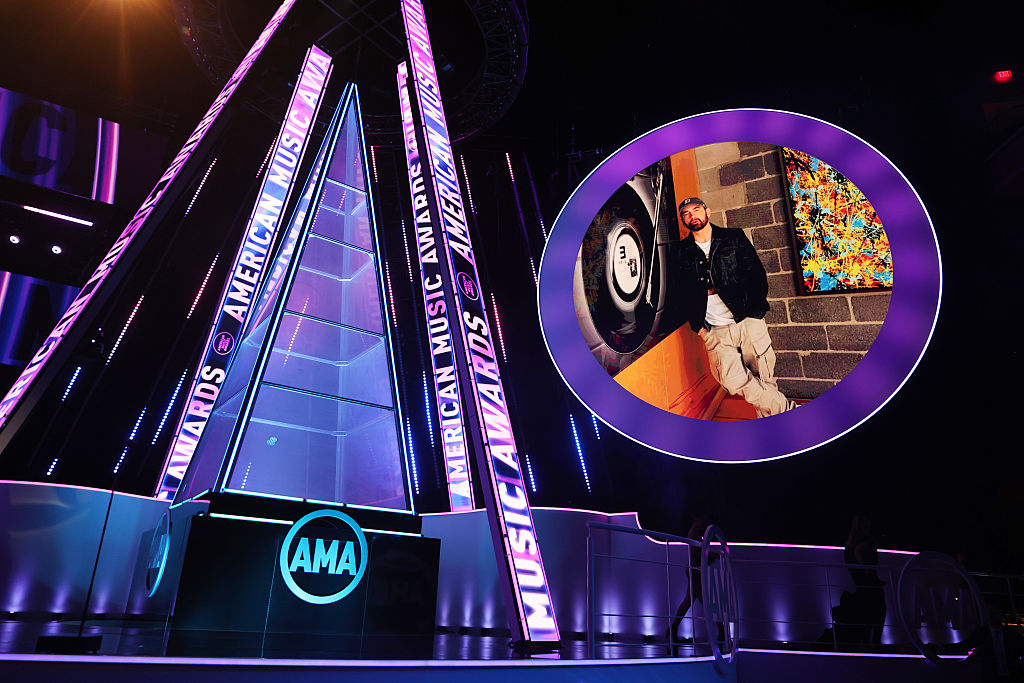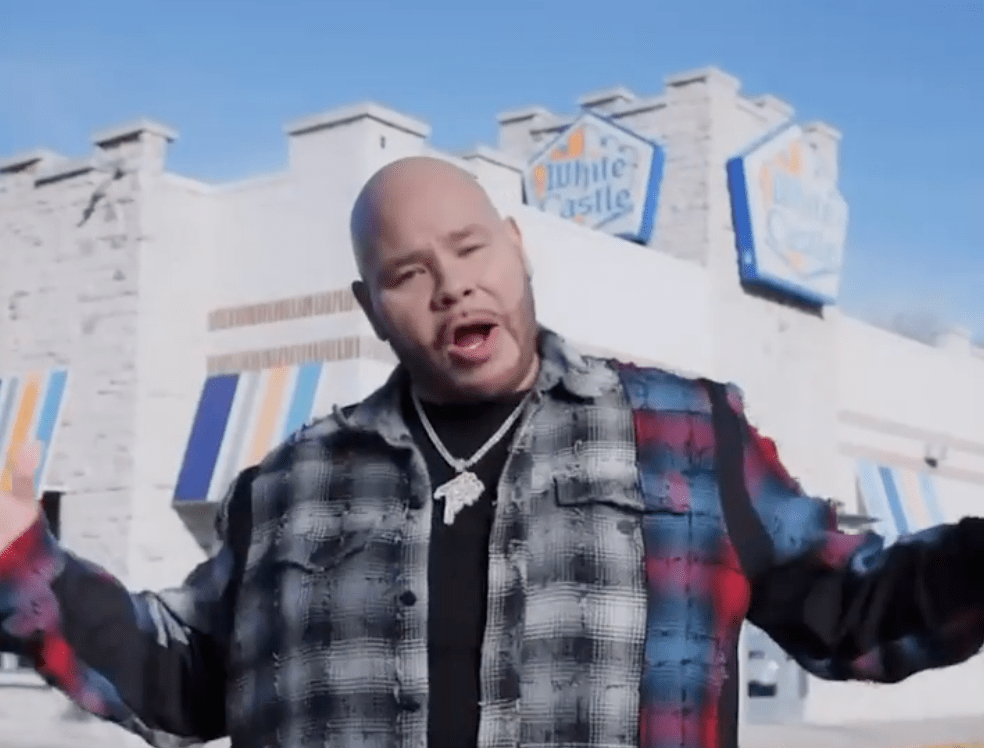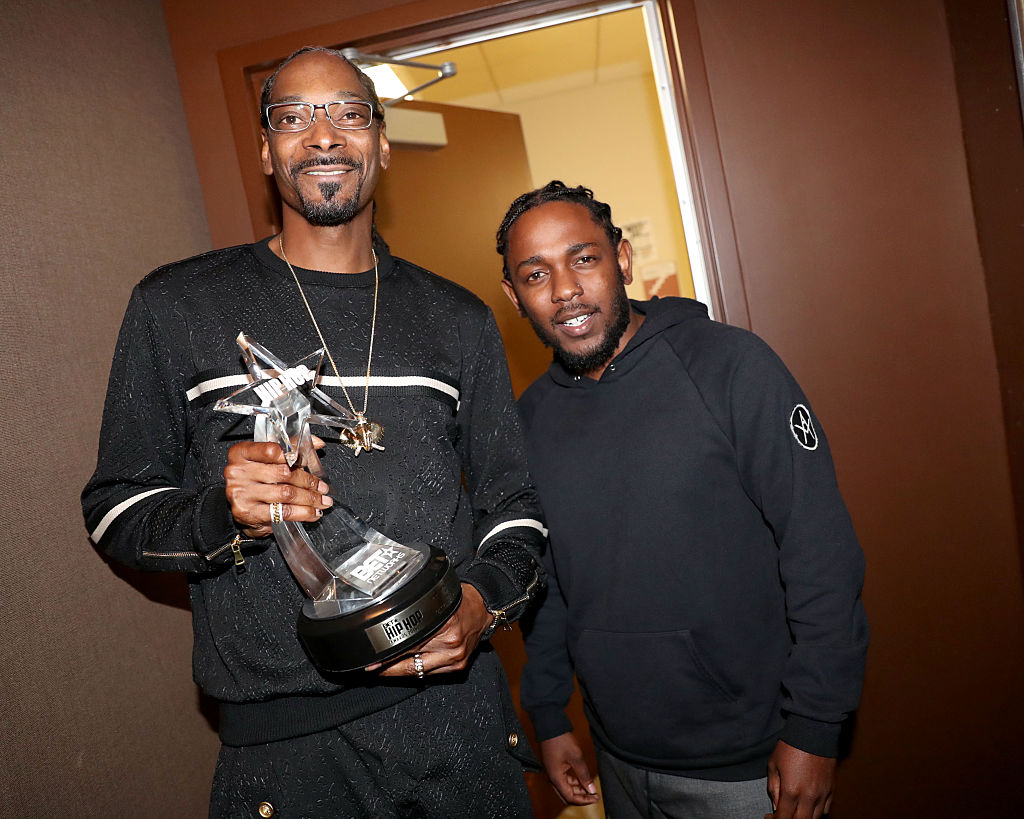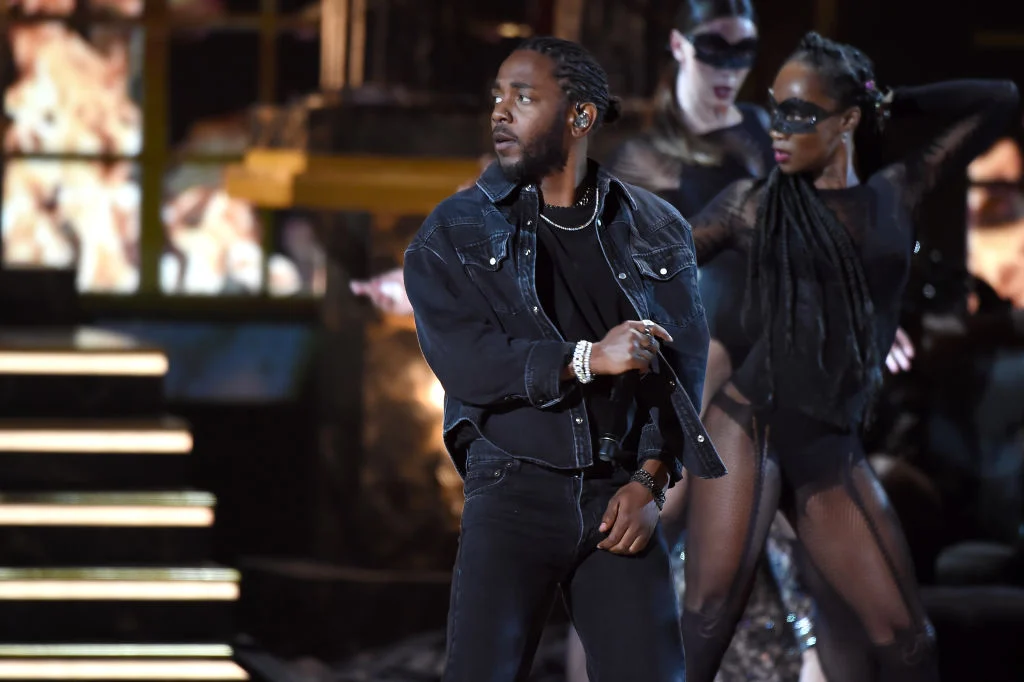kendrick lamar
Page: 2
Kendrick Lamar will be making his grand return to Australia this year, with the rapper announcing new dates for his ongoing Grand National Tour.
Lamar announced on Wednesday (June 11) that he will be performing two headline dates while in Australia this December, with stadium shows set for Melbourne’s AAMI Park on Dec. 3 and Sydney’s Allianz Stadium on Dec. 10.
The newly-announced headline shows follow on from Lamar’s inclusion on the Spilt Milk Festival lineup which arrived in early May. Also featuring Doechii, Sara Landry, Dominic Fike and Schoolboy Q as headliners, the festival will take place across Ballarat, Perth, Canberra and the Gold Coast between December 6-14.
Explore
Explore
See latest videos, charts and news
See latest videos, charts and news
The forthcoming shows will be Lamar’s first visit to Australia since The Big Steppers Tour in 2022, though unlike his current run of North American dates, they will feature Lamar in solo mode as opposed to his co-headlining status with SZA.
Lamar’s nascent tour dates also arrive in the wake of his latest batch of honors, this time coming from the BET Awards on Monday (June 9).
Trending on Billboard
Having been nominated for a total of ten awards across six categories, Lamar ended the evening as the most awarded artist, with the ceremony at Los Angeles’ Peacock Theater resulting in five trophies going his way, including album of the year, video of the year, best collaboration (with SZA), best male hip hop artist, and video director of the year (with Dave Free).
Additionally, in February 2025, in the wake of Lamar’s Grammy Awards success, his 2024 single “Not Like Us” re-entered the Australian ARIA charts and gave the rapper his first No. 1 single in the country.
Kendrick Lamar – 2025 Australian Tour Dates
Dec. 3 – AAMI Park, Melbourne, VIC, AustraliaDec. 6 – Spilt Milk Festival, Ballarat, VIC, AustraliaDec. 7 – Spilt Milk Festival, Perth, WA, AustraliaDec. 10 – Allianz Stadium, Sydney, NSW, AustraliaDec. 13 – Spilt Milk Festival, Canberra, ACT, AustraliaDec. 14 – Spilt Milk Festival, Gold Coast, QLD, Australia
Source: Paras Griffin / Getty
The American Music Awards might’ve jerked Kendrick Lamar out of a few well-deserved awards a few weeks ago, but the BET Awards sure as hell didn’t as the biggest rap star in the game today walked away with more awards than he could handle by the time the annual ceremony was over.
Leading the pack with 10 nominations, Kendrick Lamar’s name was called to the stage five times as he won awards for Video Director of the Year, Best Male Hip Hop Artist, Best Collaboration: “Luther” Featuring SZA, Video of the Year: “Not Like Us,” and ultimately Album of the Year: GNX.
Taking to the stage, Kendrick Lamar thanked BET for constantly repping the culture as only they can and have for decades now and thanked his fans while reminding them to come see him and SZA on tour.
While the culture is proud to see Kendrick Lamar finally get his flowers on a consistent basis, the streets of LA continue to be embroiled in political turmoil as the Trump administration continues to escalate their war on the Latino immigrant community by unnecessarily sending in military personnel to quell the peaceful protests against the ICE raids that have been taken place for the past few days.
This is something that Lamar’s fellow TDE label mate, Doechii, brought some attention to as she accepted her award for Best Female Hip Hop Artist. She took the time to address the injustice we’re currently experiencing at the hands of a fascist undertaking of America.
“As much as I’m honored by this award, I do want to address what’s happening right now outside of the building,” Doechii began. “There are ruthless attacks that are creating fear and chaos in our communities in the name of law and order. Trump is using military forces to stop a protest. I want y’all to consider what kind of government it appears to be when every time we exercise our democratic right to protest, the military is deployed against us. What type of government is that?”
Reminding everyone that ICE is ripping families apart due to the color of their skin, Doechii said she felt it was her duty to use her platform to speak up for all oppressed people including Black people, Latinos, Trans, and everyone in Gaza who is still under attack by Israeli President, Benjamin Netanyahu.
Props to Doechii for this. She’ll now be in MAGA’s crosshairs, but that’s expected at this point whenever someone speaks against their dear leader.
Check out Doechii’s powerful speech below and let us know your thoughts about it in the comments section.
HipHopWired Featured Video
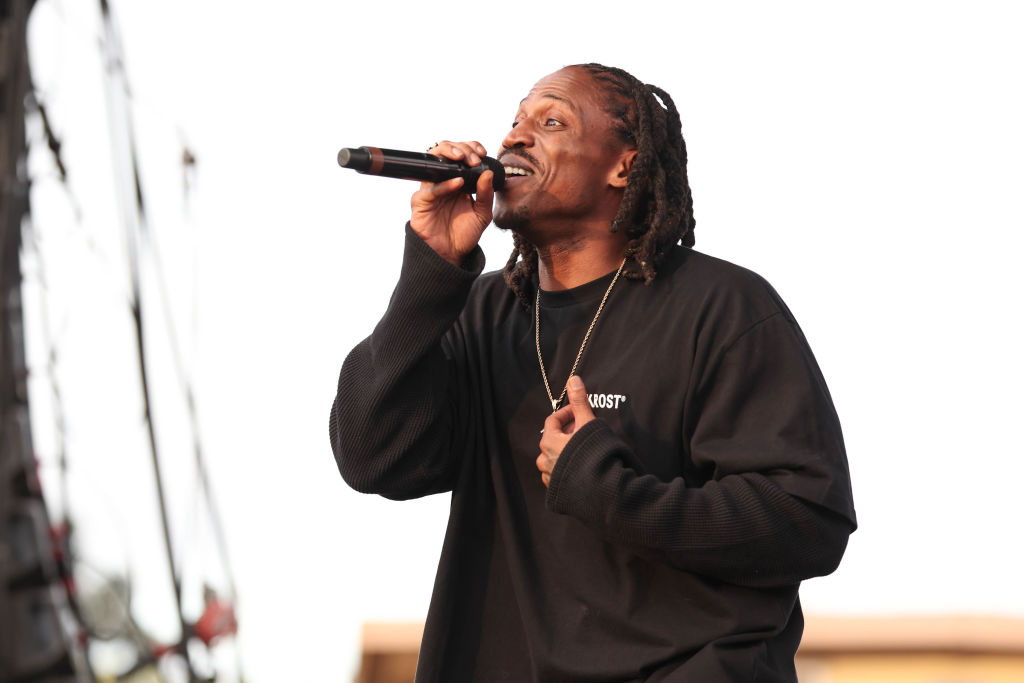
Source: Christopher Polk / Getty
Singer SiR explained why his Toronto concert got cancelled last summer, and it might be because of the drama between Kendrick Lamar and Drake.
SiR is signed to TDE, the former label Kendrick Lamar was under was supposed to perform in Toronto, Drake’s hometown. The show was sold out, but it got cancelled at the last minute. At the time, SiR said he didn’t know why and apologized to fans. During a recent show in Canada, SiR said the real reason might’ve been the beef between Kendrick and Drake. He told the crowd that things got “too close to home” for some people. He said the venue, which is partly owned by Drake, shut it down.
Then, when they tried to book a different place, that venue said no too, because they didn’t want to take the risk.
Another rapper from TDE, Schoolboy Q, said his Toronto show got cancelled too. He posted online that the Canadian police didn’t want anyone from their group performing. He joked that if they really wanted to start trouble, they would’ve already. SiR also joked about how he was in Kendrick’s music video for the Drake diss track “Not Like Us.” He said, “Now I get it, this is kind of funny. I don’t know why Kendrick put me in that video. All I could think about was my show getting cancelled.”
Basically, this rap beef is so petty, it might be messing with concerts now.
HipHopWired Featured Video
Source: Gregory Shamus / Getty
Samuel L. Jackson didn’t realize how deep Kendrick Lamar’s Super Bowl halftime show was until the final rehearsal, and it blew his mind.
In a recent podcast interview, Jackson talked about how he had no clue what the performance was really about at first. He showed up, said his lines, and wore his costume, not thinking much of it.
It wasn’t until dress rehearsal, when everything came together with lights, outfits, and full staging, that he looked around and realized, “Wait a minute… this is a statement.”Jackson played “Uncle Sam,” dressed in full red, white, and blue. The show used powerful images to talk about being Black in America and how Hip-Hop fits into that story. The legendary actor said he didn’t connect the dots until he saw the flag-like setup on stage and felt the energy during rehearsal.
Jackson admitted he wasn’t really paying attention at first. Once he saw the full picture, he realized the performance wasn’t just music, it was about making people think, “I’ve been in a lot of moments like this in my life, where I end up being part of something bigger than me, even if I didn’t plan it. I guess I’m meant to be that sometimes. An agent of change.”
What a time to make such a powerful statement, as Kendrick Lamar’s halftime show broke records. More people watched his performance than even watched the game, over 133 million viewers. That’s more than Michael Jackson’s famous halftime show. Kendrick brought out stars like Samuel L. Jackson and Serena Williams, and mixed music with a message that made history
HipHopWired Featured Video
Source: Gregory Bojorquez/Phil Faraone/MTV1617 / Getty
Clipse have revealed that their departure from Def Jam was reportedly sparked by a dispute over Kendrick Lamar’s guest verse on their upcoming album, “Let God Sort Em Out”.
In an interview with GQ, Pusha T recounted that the label pressured them to censor or remove Lamar’s verse from the track “Chains & Whips.” Pusha refused, saying, “They wanted me to ask Kendrick to censor his verse, which of course I was never doing.” After a month-long standoff, Def Jam’s legal counsel Steve Gawley reportedly told them the label would simply drop Clipse from their roster.
The tension was reportedly fueled by the fact that both Clipse and Lamar have long-standing feuds with Drake, who is currently engaged in a high-profile legal battle with Universal Music Group (UMG), Def Jam’s parent company. The optics of two of Drake’s biggest rivals collaborating while he sues UMG made the label uncomfortable, further complicating the situation.
Rather than compromise their artistic integrity, Clipse opted to part ways with Def Jam. Pusha T, who remains a prominent solo artist, negotiated a full release that allowed the group to sign with Roc Nation for their long-awaited reunion project. Neither Def Jam nor UMG have publicly addressed the claims made by Pusha.
This move underscores the ongoing tension in Hip-Hop’s most talked-about rivalries, particularly as Pusha T continues to stand firm against Drake, a beef that escalated when Pusha exposed Drake’s secret child in “The Story of Adidon,” a diss track that defined their feud.
HipHopWired Featured Video
Source: Christopher Polk / Getty
On Monday (May 26), some of your favorite music artists were bestowed with awards at the 2025 American Music Awards and while some were expected due to the success they experienced this past year, others were surprising as some upsets were pulled off as a reminder that yes, this is America alright.
Most shocking to many in the Hip-Hop culture was Eminem’s wins over Kendrick Lamar for Favorite Hip Hop Artist and Favorite Hip Hop Album as Slim Shady almost helped shut out Kendrick winning any awards in the 10 categories he was nominated in. Now, we can’t deny that Eminem is a Hip-Hop legend, but the man did not have a better year than Kendrick Lamar did in 2024 in any sense of the word. Just sayin’. Luckily, K. Dot was recognized for the work he put in in his efforts to dismantle Drake and took home the award for Favorite Hip-Hop Song for his classic cut “Not Like Us.”
As the show went on many of your other favorite artists took home some gold as the likes of Megan Thee Stallion (Favorite Female Hip-Hop Artist), Bruno Mars (Favorite Male Pop Artist) and Beyoncé (Favorite Female Country Artist) were recognized for their body of work this past year. We’re low-key surprised Beyoncé winning a country award didn’t spur MAGA to take to social media to say this is what’s wrong with America or something.
The biggest winner of the night was indeed Billie Eilish who took home seven awards including Artist Of The Year and Album Of The Year for her third studio album Hit Me Hard And Soft.
While many fans think these awards shows are rigged in some way, shape or form, according to People, the nominees and winners of the American Music Awards is a fan-voted awards ceremony based on “key fan interactions, including streaming, album and song sales, radio airplay and tour grosses.”
How this algorithm led to Eminem beating out Kendrick Lamar still doesn’t make sense to us, but that’s neither here nor there.
Check out the complete list of winners on the American Music Awards website, and let us know your thoughts in the comments section below.
HipHopWired Featured Video
Source: White Castle / White Castle
Fat Joe is putting major respect on Kendrick Lamar and SZA’s name, saying they’re on the verge of becoming the greatest rapper/singer duo the game has ever seen.
Chopping it up on his Joe and Jada podcast, the Hip-Hop OG spoke on how the TDE heavyweights are making serious noise together. “What you don’t know is that they’re gonna be best friends and all that forever,” Joe said. “Right now, they got like six or seven joints. They number one. They could take the slot, 100%. They fire together.”
Crack even put them in the same convo as Ja Rule and Ashanti—one of the most iconic duos in the game—but made it clear Kendrick and SZA are on a different level ‘cause they both run things as solo stars. Their collab “Luther” is doing big numbers, breaking records left and right. It’s now the longest-running No. 1 hit by a co-billed solo male and female duo, beating out Diddy and Faith Evans’ ‘94 classic “I’ll Be Missing You.”
That’s not all—“Luther” is officially the biggest Hip Hop single of the decade, passing Roddy Ricch’s “The Box” which held it down for 11 weeks back in 2020. Only Mariah Carey and Boyz II Men’s “One Sweet Day” has spent more time at the top of the Billboard Hot 100. Fat Joe’s calling it early: if Kendrick and SZA keep this wave going, they might just lock in that GOAT duo status for real.
HipHopWired Featured Video
Source: Johnny Nunez/BET / Getty
Snoop Dogg kept it real and admitted Kendrick Lamar checked him on “Wacced Out Murals,” and rightfully so.
The West Coast legend pulled up for an interview, Snoop talked about the heat he caught after postin’ Drake’s AI-made diss track, “Taylor Made Freestyle,” which used fake vocals of Pac and Snoop himself. Kendrick didn’t hold back on the GNX intro, rapping, “Snoop posted ‘Taylor Made,’ I prayed it was the edibles, I couldn’t believe it, it was only right for me to let it go.” That line hit the streets hard and had folks talkin’.
Snoop owned up to it with no ego. “A big dawg can get checked if it’s by the right person,” he said. “Ain’t nothin’ wrong with gettin’ put in your place if you outta pocket… Sometimes the young homies can teach the old Gs a new trick.”
He broke it down even more with Bootleg Kev, sayin’ he didn’t even realize what he did wrong at first. “Then I get the word, ‘Nephew didn’t like what you did.’ I’m like, what did I do?! ‘You played some music.’ I’m like, what music?! Then I look back at the post and I’m like, ‘Aw, that’s cuz.’”
Once it clicked, Snoop did the grown man thing. “I deleted it, called Kendrick, left him a message ’cause he ain’t pick up, he was locked in workin’ on his shit. I said, ‘Nephew, it’s Uncle Snoop, I got the message, I apologize, I was f**ked up, my bad.’”
All love between the OG and the new king
HipHopWired Featured Video
HipHopWired Featured Video
Source: Variety / Getty
t is clear Kendrick Lamar had a banner year in 2024. He leads the nominations for the 25th BET Awards with 10 nods.
As spotted on Deadline, Kendrick Lamar is poised to be the man of the hour at the 2025 BET Awards. On Wednesday (May 7), the television network announced the nominations for their upcoming ceremony and K-Dot locked in 10 nods throughout several categories. His nominations include Album of the Year for GNX, Video of the Year for “Not Like Us,” three Viewer’s Choice Award slots for “Not Like Us,” “Luther,” featuring SZA, and “Like That” with Future and Metro Boomin. He is also up for three Best Collaboration awards for “Like That,” “30 for 30,” and “Luther,” featuring SZA. He is also up for Video Director of the Year with his frequent collaborator Dave Free, and Best Male Hip Hop Artist.
While Kendrick is the front-runner some of his Rap colleagues will also have the opportunity to have a big night. Doechii is also nominated six times with her Alligator Bites Never Heal mixtape up for Album Of The Year, Video of the Year and Viewer’s Choice Award for “Denial is a River,” BET Her for “Bloom,” Best Collaboration for “Alter Ego” featuring JT, and Best Female Hip Hop Artist.Drake is also up for Best Male Hip Hop Artist, Album Of The Year for $ome $exy $ongs 4 U with PartyNextDoor, Video Of The Year for Family Matters, Best Group, Best Male R&B/Pop Artist, and Viewer’s Choice Award for “Nokia.”
The 2025 BET Awards will stream live Monday (June 9), on BET at 8 p.m. ET/PT hosted by Kevin Hart.
HipHopWired Featured Video
Source: Mike Marsland/Variety / Mike Marsland/Variety
Kendrick Lamar, Future, and Metro Boomin have been hit with a lawsuit over their chart-topping track “Like That,” stemming from alleged unpaid royalties related to a sample.
Veteran rapper Rodney O claims that the song uses elements from his classic track “Everlasting Bass” without proper compensation or credit. The legal action also targets the estate of Barry White, whose music appears on the Kanye West remix of the song. Rodney O argues that he never received full payment or acknowledgment for the use of his work, especially when the song was submitted for Grammy consideration without his name in the songwriting credits.
He also says he was not given the version of the track that features Kendrick Lamar’s headline-making verse dissing Drake, which has become one of the most talked-about moments in recent rap history. A spokesperson for Metro Boomin countered the claims, stating that they did secure rights to the sample and paid Rodney O $50,000. They also pointed to the Barry White estate as a possible reason for delayed royalty distribution, citing its ties to Epic Records as a potential complication.
The Barry White estate has yet to issue a statement regarding the lawsuit. As “Like That” continues to dominate the conversation in hip-hop, the legal dispute adds another layer of controversy—highlighting ongoing issues around sample clearances, fair compensation, and proper credit in the music industry.

 State Champ Radio
State Champ Radio 
